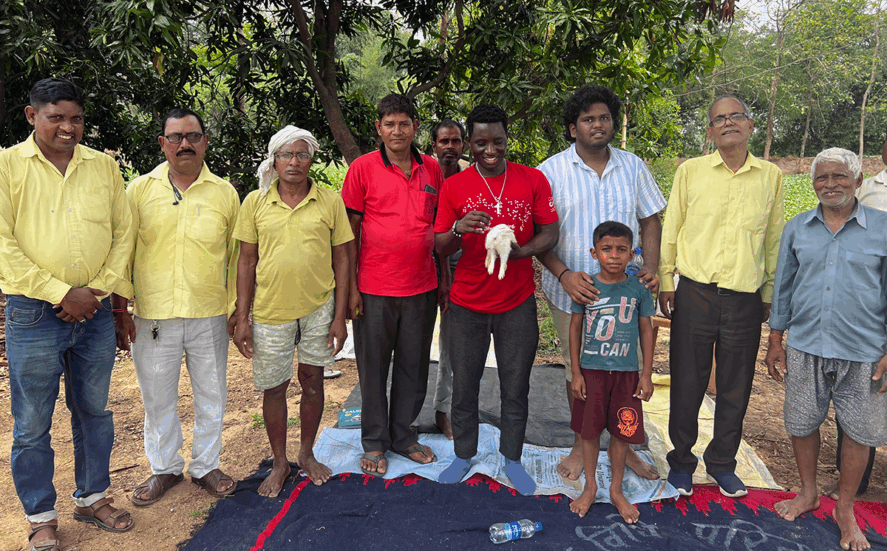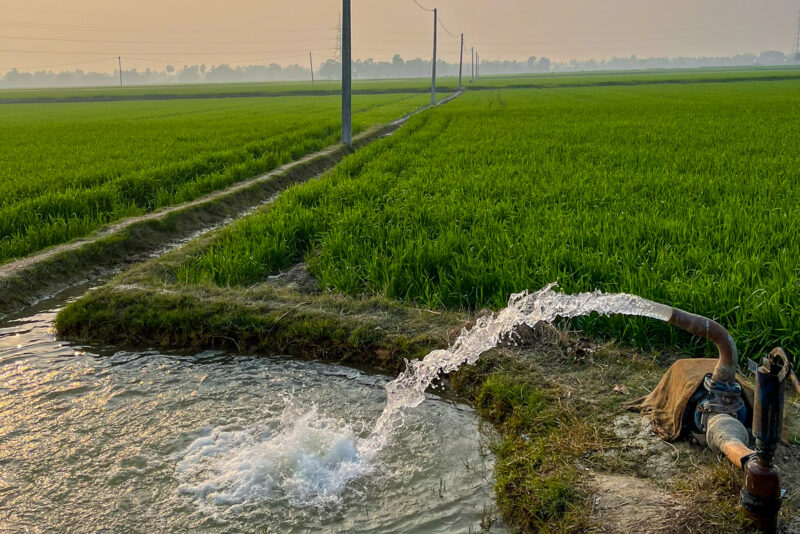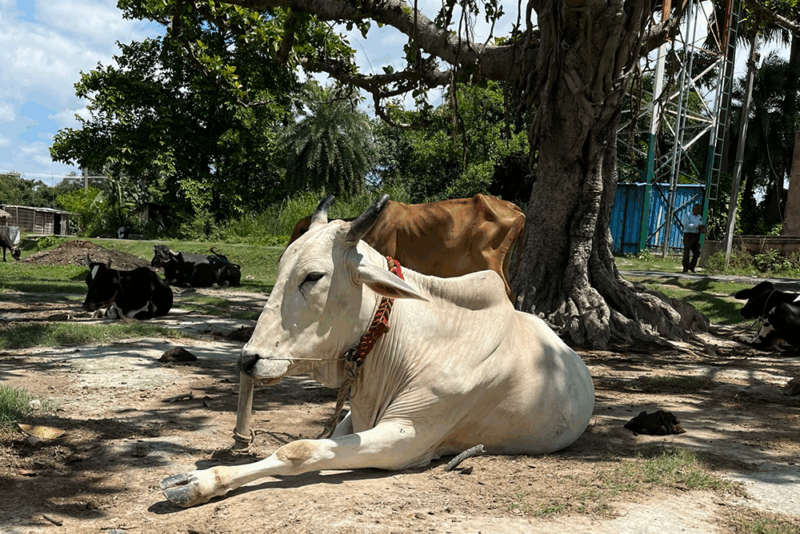Farming the Sun, Cultivating Hope: How Agrivoltaics in Nawada Builds Resilience and Community

When I first began working with farming communities in Rwanda, I discovered a truth that has shaped my perspective on development ever since: real transformation does not come from technology alone—it comes from people. It comes from communities standing together, building collective resilience. The strength of a group, more than any single innovation, drives sustainable change. That lesson echoed powerfully during my visit to the Nawada Agrivoltaics Producers Group in Gaya ji district, Bihar, India.
This group, supported by the Tata-Cornell Institute for Agriculture and Nutrition (TCI) and Preservation and Proliferation of Rural Resources and Nature (PRAN), along with Jain Irrigation Systems, is the human face behind an exciting new chapter in climate-smart agriculture. In Nawada village, the TCI-led team installed agrivoltaic technology—solar panels situated on farmland to produce electricity while allowing crops to grow in the same field. But what I witnessed during my time there was far greater than an agricultural experiment. It was a deeply inspiring story of people daring to believe in a shared dream and building more than just agrivoltaics.
Agrivoltaics is the practice of combining agriculture with solar power production on the same land. In countries like India where land use is increasingly contested, this system allows for both food and energy generation. In Nawada, solar panels are mounted high above crop fields. These panels capture sunlight to produce electricity, which then powers both sprinkler and drip irrigation systems, improving efficiency, water conservation and crop yields. Any excess electricity is used to run a grain mill. Agrivoltaics offers a resilient, low-emission path forward. But during my interviews with farmers, I learned that its meaning for the farmer group of Nawada stretches far beyond technical benefits.

Elie Ntakirutimana (second from the left) listening during a meeting between TCI staff and farmers in Nawada village. (Photo by TCI)
I sat with six farmers from the group, curious to understand how they came to trust this technology, which was completely new. What I heard humbled me. These farmers spoke of hope. Of resilience. Of the courage to try something new, together. They weren’t merely implementing a project—they were pioneering a future. They explained that after TCI inaugurated the agrivoltaics site, the group began dreaming bigger. They want to scale their operations, expand their group and increase their collective income.
“We are planning to grow high-value crops— banana, vegetables, green gram, pulses—because they’ll bring in better profits,” one farmer told me. “With that income, we’ll reinvest in land and more infrastructure.”
They are even discussing forming a farmer producer organization (FPO), a move that would strengthen their financial standing, open up markets and drive community development. These farmers are no longer just growing crops. They are cultivating transformation.
What impressed me further was how their vision is already inspiring others. I spoke with a neighboring farmer—someone who isn’t yet part of the group. When I asked him what he thought of the agrivoltaics project, his response was immediate and unambiguous. “I want to be a part of it,” he said. “I’ve seen how beautiful their crops are—healthy, green, and well-irrigated. It’s something I need for my own fields, too.”
I spoke with a neighboring farmer—someone who isn’t yet part of the group. When I asked him what he thought of the agrivoltaics project, his response was immediate and unambiguous. “I want to be a part of it,” he said.
That moment stayed with me. It reinforced a powerful idea: that meaningful development creates ripples. It sparks desire, spreads belief, and builds movement. Nawada’s agrivoltaics system is not a closed circle; it’s an open invitation to more farmers, more innovations and more impact.
While the technology itself fascinated me, the most profound lessons I carried home came from the way the community functions. I came to understand that what sustains Nawada Agrivoltaics Producers Group’s progress is not just infrastructure or funding—it’s the driving values, trust and cohesiveness they have. While in Bihar, I was struck by the fact that alcohol and smoking are banned in this state. At first, I was surprised. Nowhere else have I encountered such a deliberate commitment to protect public health and social order through collective discipline. It reminded me that rural development cannot be reduced to economics. It is deeply human. Culture matters. Social rules matter. Communities thrive when they build protective norms, when they hold each other accountable, and when they decide together what future they want to create.
Visiting Nawada left me with more than just insights—it left me with deep admiration and hope. I saw firsthand how technology, when rooted in trust and community, can create far-reaching change. Agrivoltaics is more than a method. It’s a model for blending sustainability, community empowerment and shared vision. These farmers aren’t just using solar panels to grow crops. They’re using them to build livelihoods, resilience and pride. They’re not just going to produce food—they’re producing belief. The belief that rural communities can lead innovation. The belief that development must be inclusive. The belief that progress comes when people walk forward, not alone, but together.
Elie Ntakirutimana is a 2025 TCI summer intern. He is a rising junior at Cornell University’s College of Agriculture and Life Sciences, where he studies global development and agricultural sciences.
Featured image: Elie Ntakirutimana with PRAN staff and a group of farmers from Nawada (Photo provided).





